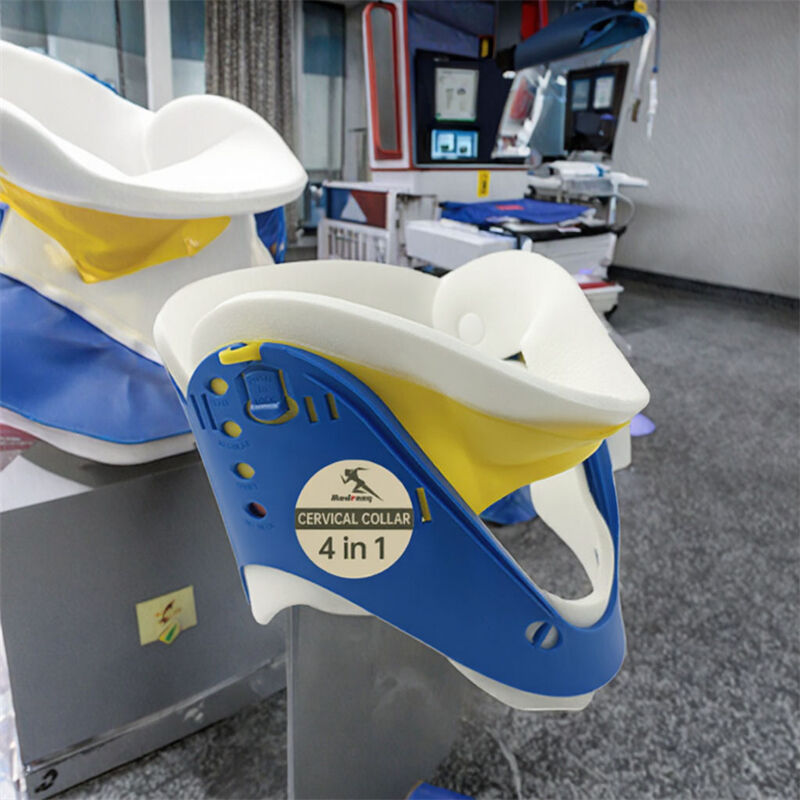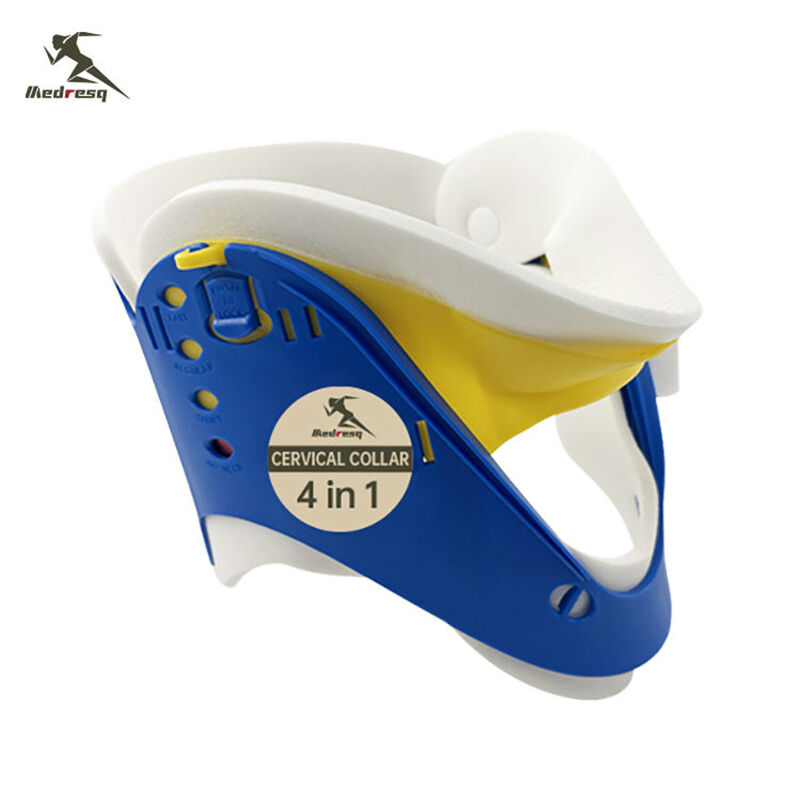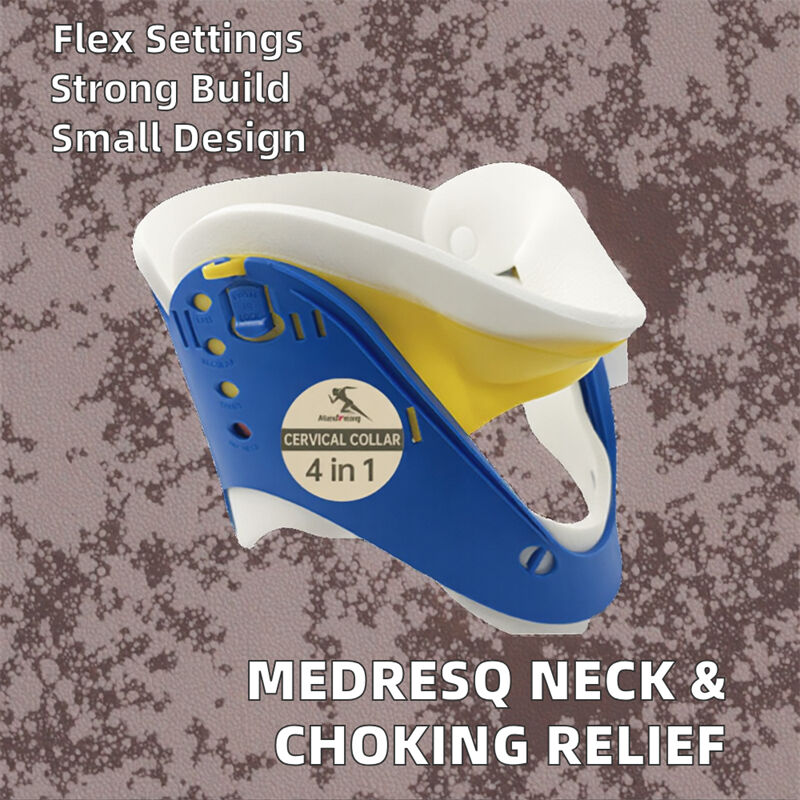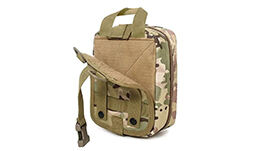Cervical Collar: The Ultimate Guide to Neck Support & Injury Prevention
Neck injuries can be debilitating, requiring immediate stabilization to prevent further damage. A Cervical Collar (also called a neck brace or C-collar) is a crucial medical device designed to immobilize and support the cervical spine after trauma, surgery, or chronic conditions. At Medresq, we specialize in custom-fit cervical collars that provide optimal comfort, safety, and medical-grade support.
This comprehensive guide covers:
✔ What a Cervical Collar is and when it’s needed
✔ Different types of neck braces and their uses
✔ Why Medresq’s custom C-collars outperform standard models
✔ How to choose the right collar for injuries, recovery, or post-surgical care
✔ Proper fitting and maintenance for long-term use
By the end, you’ll understand why Medresq’s Cervical Collars are trusted by doctors, physical therapists, and emergency responders worldwide.
What Is a Cervical Collar?
A Cervical Collar is a rigid or semi-rigid brace that wraps around the neck to:
✔ Limit movement (preventing further spinal injury)
✔ Reduce pain & muscle strain
✔ Promote proper healing after trauma or surgery
Common Uses of Cervical Collars
· Trauma & Emergency Care – Used by EMTs and ER teams for whiplash, fractures, or suspected spinal injuries
· Post-Surgical Recovery – Helps stabilize the neck after spinal fusion or disc surgery
· Chronic Conditions – Supports patients with degenerative disc disease, arthritis, or cervical stenosis
· Sports & Accident Prevention – Worn by athletes in high-impact sports (e.g., football, motorsports)
Types of Cervical Collars: Which One Is Right for You?
Not all neck braces are the same. Here’s a breakdown of the most common types:
1. Rigid Cervical Collars (Hard Collars)
Made from firm plastic or foam with metal supports
Maximum immobilization for severe injuries
Often used in emergency medicine and post-op recovery
2. Soft Cervical Collars
Constructed from flexible foam or padded fabric
Provides mild support for muscle strains or minor whiplash
Ideal for short-term use (e.g., after minor car accidents)
3. Adjustable & Semi-Rigid Collars
Combines stabilization with comfort
Features velcro straps or modular padding for a customizable fit
Used in long-term rehabilitation
4. Custom-Molded Cervical Collars
Tailored to the patient’s anatomy for perfect fit
Best for chronic conditions or post-surgical needs
Medresq specializes in these bespoke solutions

Why Choose Medresq’s Custom Cervical Collars?
Standard collars often cause discomfort, pressure sores, or improper alignment. Medresq’s custom-fit C-collars solve these issues with:
✔ Personalized Fit for Optimal Support
3D-scanned or molded designs match the patient’s neck curvature
Reduces skin irritation and pressure points
✔ Medical-Grade Materials
Breathable, hypoallergenic foam for long-term wear
Reinforced plastic or lightweight carbon fiber for durability
✔ Adjustable & Modular Designs
Removable padding for cleaning and adjustments
Multi-strap systems for secure yet comfortable fit
✔ Trusted by Medical Professionals
Used in hospitals, trauma centers, and rehab clinics
FDA-compliant & CE-certified for safety
How to Properly Fit a Cervical Collar
Incorrect fitting can worsen injuries! Follow these steps:
Step 1: Measure the Neck
Chin to sternum height & neck circumference determine size
Step 2: Position the Collar Correctly
The chin rest should support without pushing the head forward
The lower edge must rest on the shoulders, not the trachea
Step 3: Secure Without Over-Tightening
Straps should be snug but allow slight finger space
No excessive pressure on the jaw or throat
Step 4: Check for Proper Alignment
The head should be in a neutral position (not tilted)
No gaps between the collar and neck
Pro Tip: A custom-fit Medresq collar eliminates guesswork for perfect support.

Who Needs a Cervical Collar?
Our collars are essential for:
1. Trauma & Emergency Patients
Car accident victims (whiplash prevention)
Fall or sports injury cases
2. Post-Surgical Recovery
Spinal fusion, disc replacement, or laminectomy patients
3. Chronic Neck Conditions
Cervical radiculopathy, osteoarthritis, or herniated discs
4. Occupational & Sports Use
Race car drivers, MMA fighters, construction workers
How to Choose the Best Cervical Collar
Consider these factors:
1. Injury Severity
Rigid collars for fractures, soft collars for minor strains
2. Duration of Use
Short-term recovery vs. long-term degenerative conditions
3. Comfort & Skin Sensitivity
Padded, moisture-wicking liners prevent skin breakdown
4. Custom vs. Standard Fit
Medresq’s custom collars prevent slippage and misalignment
5. Medical Certification
FDA, CE, or ISO standards ensure safety

Why Trust Medresq for Your Cervical Collar Needs?
We offer:
· Tailored designs for perfect fit & comfort
· Military-grade durability for trauma cases
· Bulk orders for hospitals & clinics
· Global shipping & fast production
A Cervical Collar is a life-changing device for injury recovery and spinal protection. Medresq’s custom-fit collars provide superior support, comfort, and medical-grade reliability—making them the top choice for doctors and patients.
Need a high-quality neck brace? Contact Medresq today for bespoke cervical solutions!
Hot News
-
Advancements in Medical Structures: Enhancing Emergency Response and Patient Care
2025-06-13
-
The Vital Role of Stretchers in Emergency Medical Care
2025-03-07
-
DEVELOPMENT AND PROSPECT OF BATTLEFIELD INDIVIDUAL FIRST AID KIT
2025-02-20
-
Enhancing Emergency Response: The Role of IFAKs in Trauma Care
2025-02-20
-
Windlass Rod Tourniquet: An Essential Component in Emergency Medical Response
2025-02-13
-
The Windlass Rod Tourniquet: A Lifesaving Device in Emergency Medical Response
2025-02-13
-
Decompression Needle: Essential Design, Usage, and Future Directions in Trauma Care
2024-11-29
 EN
EN
 FR
FR
 DE
DE
 IT
IT
 JA
JA
 KO
KO
 RU
RU
 ES
ES
 AR
AR
 BG
BG
 HR
HR
 DA
DA
 NL
NL
 FI
FI
 EL
EL
 NO
NO
 PL
PL
 PT
PT
 RO
RO
 SV
SV
 TL
TL
 ID
ID
 SR
SR
 UK
UK
 VI
VI
 SQ
SQ
 TH
TH
 TR
TR
 AF
AF
 MS
MS
 CY
CY
 IS
IS
 HY
HY
 AZ
AZ
 KA
KA
 MN
MN
 MY
MY
 KK
KK
 UZ
UZ
 CS
CS



